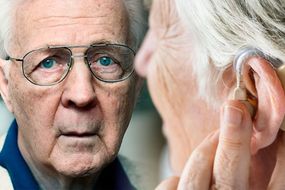Nature Knows and Psionic Success
God provides
Dementia symptoms: Four signs when a person sleeps that could signal the condition

Dementia is a term used to describe a group of related symptoms associated with the ongoing decline of brain function. There are four main types of the condition – vascular dementia, Alzheimer’s disease, frontotemporal dementia and Lewy body dementia. Recognising the symptoms of dementia can give a person the opportunity to slow down the condition and to receive the appropriate treatment they may require sooner. Problems with sleep are very common for people with dementia, according to Alzheimer’s Society, and the charity says there are five ways it can be affected. Dementia: Study finds surprising risk factor Dementia: Could this popular diet reduce your risk? Problems with sleep are very common for people with dementia and there are five ways it can be affected It says these can include: Sleeping during the day and being awake and restless during the night Becoming disorientated in the dark if they wake up to use the toilet Waking up more often and staying awake longer during the night Getting up in the early hours and thinking it’s day time or time to go to work (disorientation in time) Not being able to tell the difference between night and day The charity further explains: “Nobody completely understands why dementia affects sleeping patterns. For some people, it may be that their internal ‘biological clock’, which judges what time it is, becomes damaged so the person starts to feel sleepy at the wrong time of day. “There are also other parts of the brain which control whether or not we stay awake, and these may also not work properly if they become damaged. “Sometimes a person with dementia might completely reverse their normal sleep pattern, staying up all night and then sleeping all day.” But the charity also notes these sleep changes are usually linked […]
Click here to view full article
